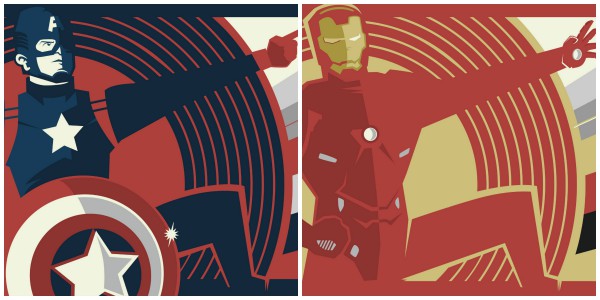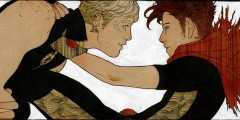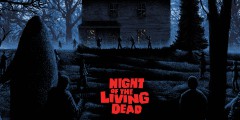Marvel’s civil war – unlimited power and no supervision
April 20, 2016
Should superheroes be subject to government oversight? Robyn Muir and Ibtisam Ahmed from the School of Politics and International Relations choose their team and explain why. Robyn Muir is #TeamIronMan and in favour of regulation The issue of regulation is something that surrounds us all, but what is it? Is it monitoring individual conduct or is …
‘We never go out of style, never go out of style’: On Taylor Swift and Repetition
February 19, 2016
At the recent Grammy Awards for 2016, Taylor Swift not only picked up the Best Music Video award for her hit ‘Bad Blood’ (featuring Kendrick Lamar), her album 1989 was also awarded the Album of the Year as well as the Best Pop Vocal Album. Whilst Swift had previously won the Album of the Year …
Queer Narratives and Intersectional Sexuality
January 27, 2016
The paradigm of queer storytelling has seen a massive shift in recent decades. While queer characters – usually gay men – started off as the butt of severely outdated punchlines when they first breached the mainstream, the advancement of LGBTQ+ rights worldwide, combined with a greater understanding of the various identities that make up the …
Sadness sells? Death and the Young Adult Protagonist
January 14, 2016
An epic poem in Latin, about the foundation of Rome. A narrator and a protagonist, both young women. From bereavement at the beginning to a climactic death. All in all, Caroline Lawrence’s Queen of the Silver Arrow is a striking and unusual piece of children’s literature. It tells the story of the warrior princess Camilla, …
Designer dragons and transgenic triffids
November 17, 2015
Sean May from our School of Biosciences discussed the genetic imagination in his recent Popular Culture lecture. How might we build a dragon? Or dinosaur? Or triffid? First we need to set some design parameters: Feathered serpents are found in the myths, religions and heraldry of all populated continents: From Quetzalcoatl in the Aztec west; through …
Science fiction vs. science fact
November 11, 2015
Dr Catrin Rutland from our School of Veterinary Medicine and Science introduces the lecture she’ll be giving this week as part of the Popular Culture series. In the 1950’s a new science was born, yet scientists and the literature had long been fascinated with what we now call ‘Genetics’. Long before the term genetics existed, writers …
Zombie Genomics – Sean on the Dead
October 30, 2015
Sean May from our School of Biosciences discussed the science of zombies as part of the Popular Culture Lecture Series earlier this year. I’m an unashamed slow-zombie fanboy (fast-zombies are just a trivial problem in viral epidemiology IMHO); and have pondered zombie biology for decades. This was an opportunity to really get my teeth into …
Do you like scary movies?
October 26, 2015
Keith Bound from the School of Cultures, languages and Area Studies discussed cinematic suspense and his Terror and Tension film experiment earlier this year. Susan Smith’s suspense narrative model defines four forms of suspense: Direct: we see the film in the first person – as if we are the character in the film. Shared: when …
James Bond’s ghosts
Dr Nathan Waddell from our School of English introduces the first session of Popular Culture Lecture Series II. Every hero has a spectre. For every Bond there’s a Blofeld. For every Katniss Everdeen a Coriolanus Snow. We value heroes because of their villains. Blofeld’s machinations make Bond more daring. Snow’s intolerance makes more charitable the future …
Nina Allan on clocks, watches and time travel
October 19, 2015
British Science-fiction author Nina Allan explains the inspiration behind her award-winning collection of short stories, ‘The Silver Wind’. ‘The Silver Wind’ consists of six interlinked stories. All are on the theme of time travel, or travelling through time. Although each of these separate ‘chapters’ can be read as a standalone story, I have always thought …










